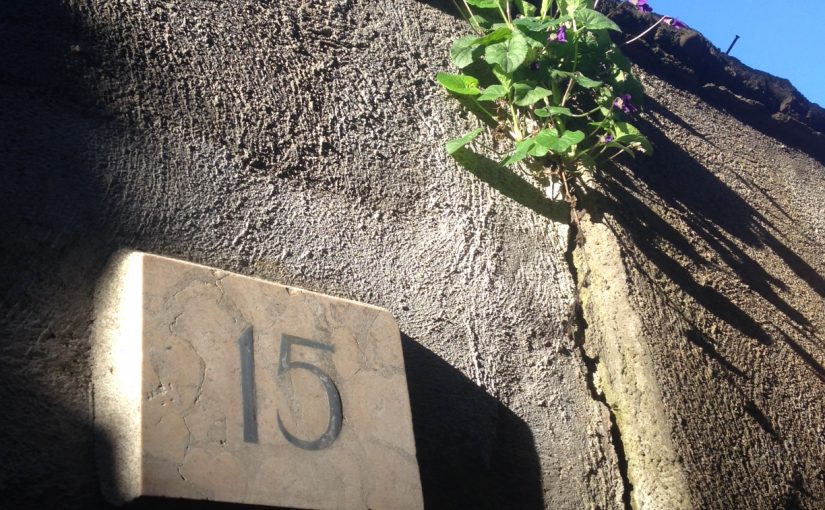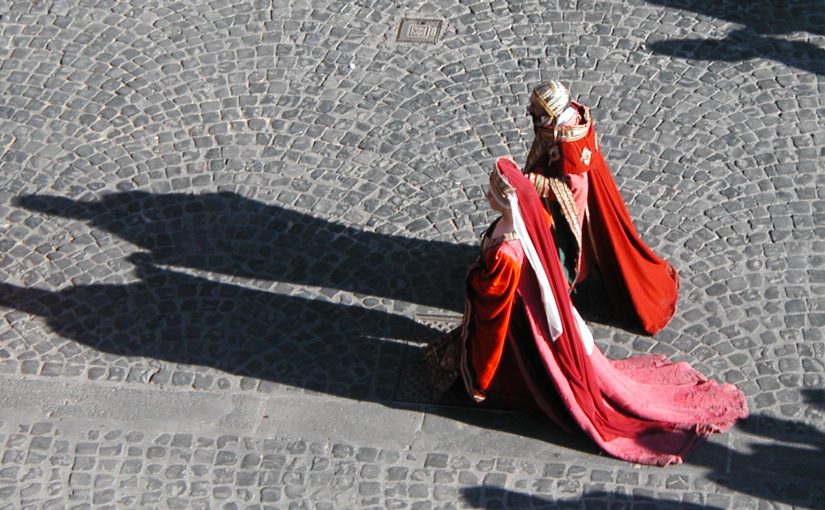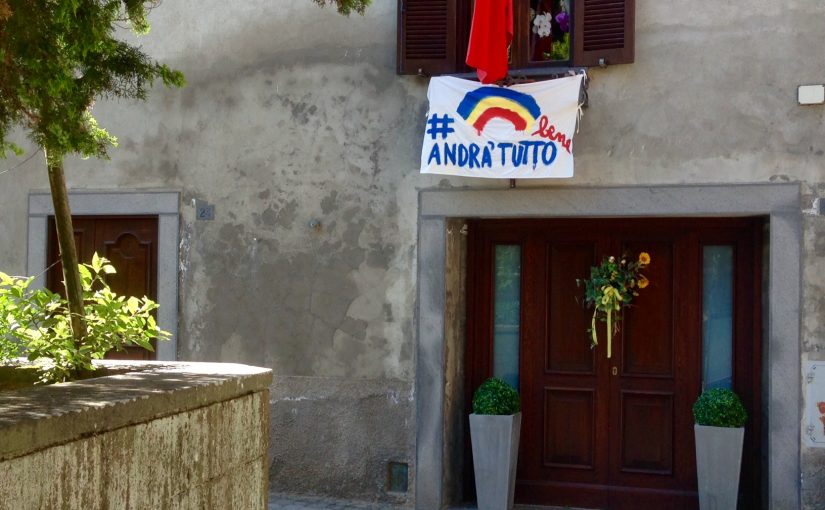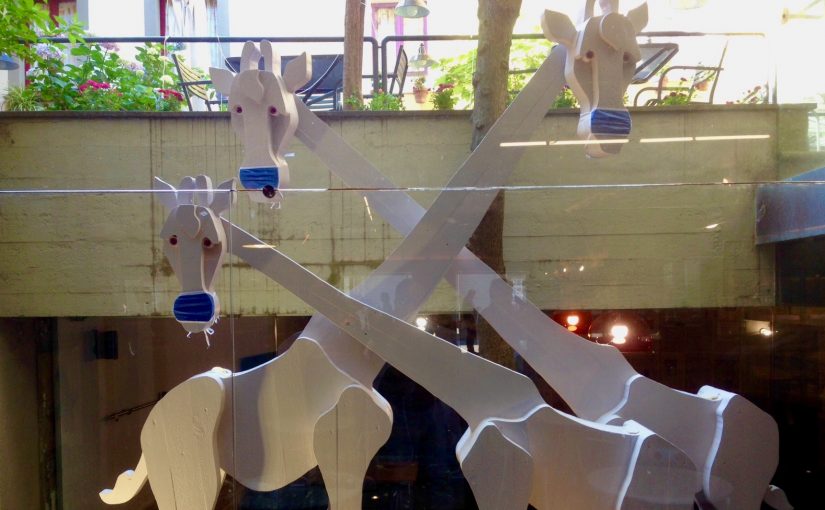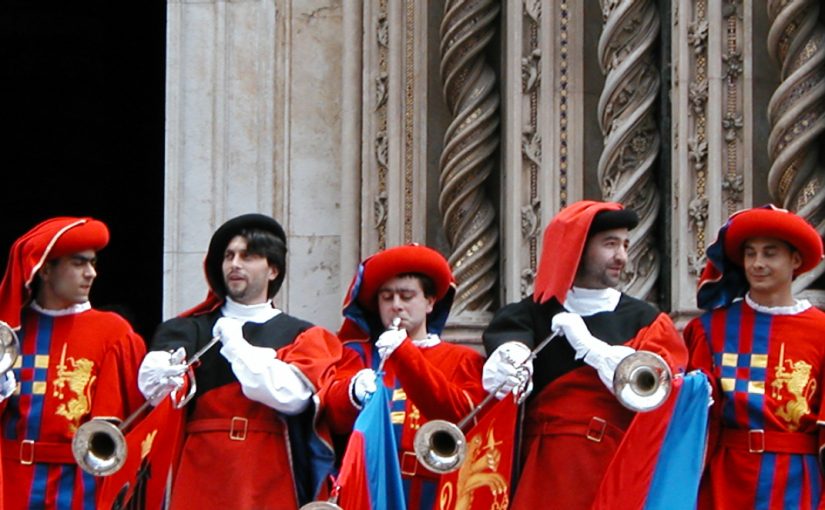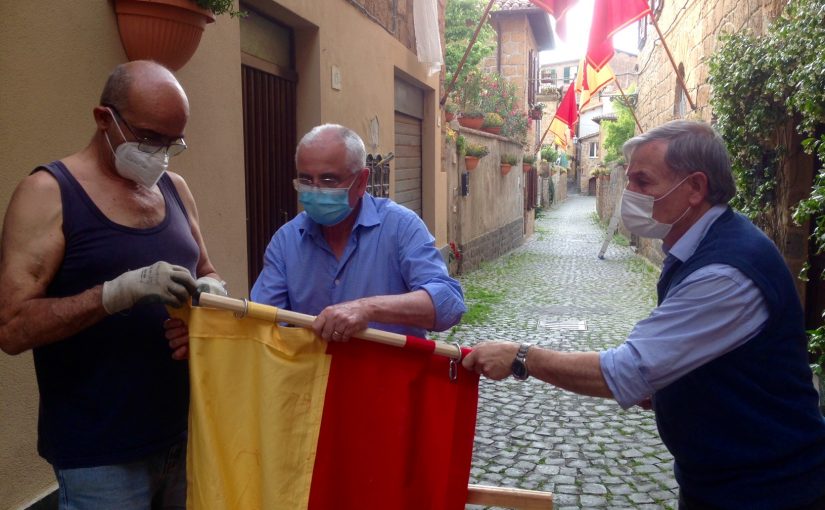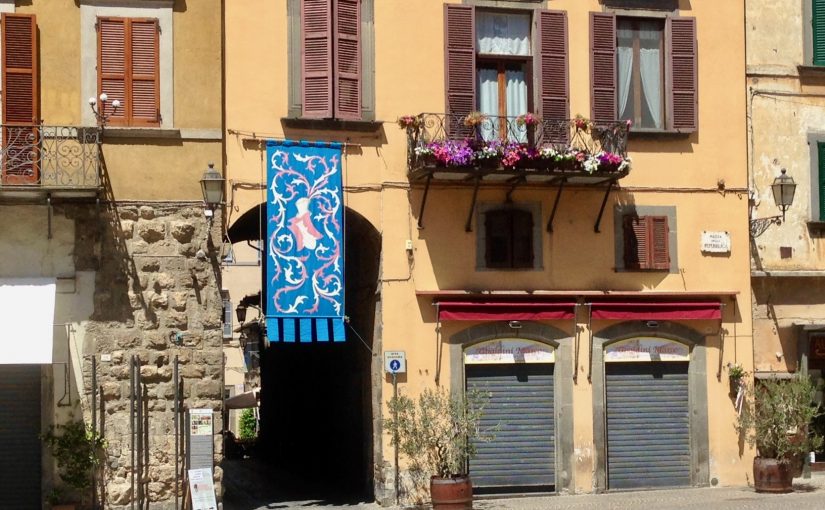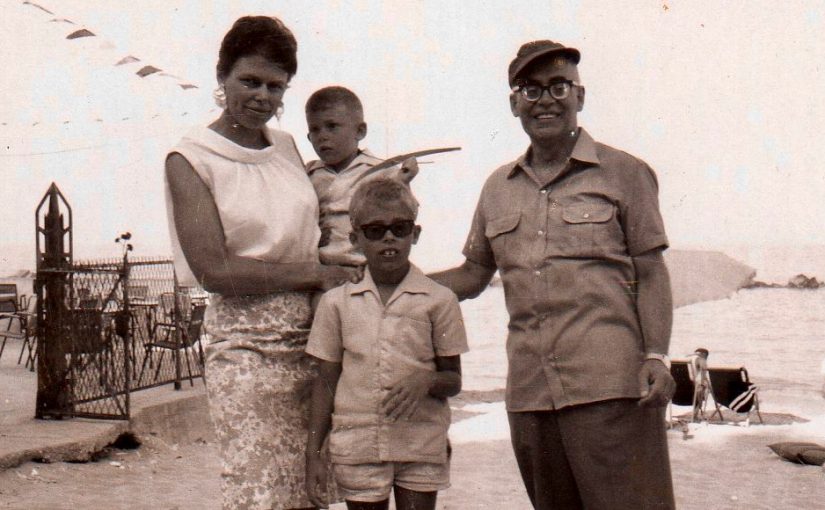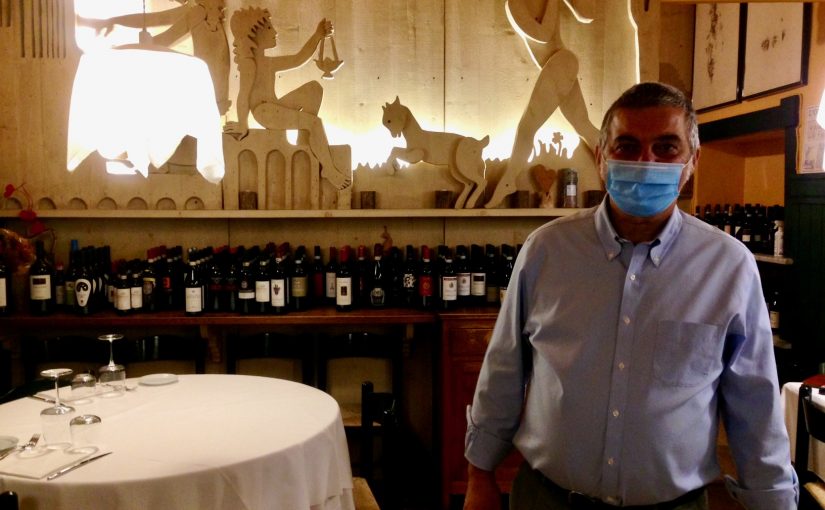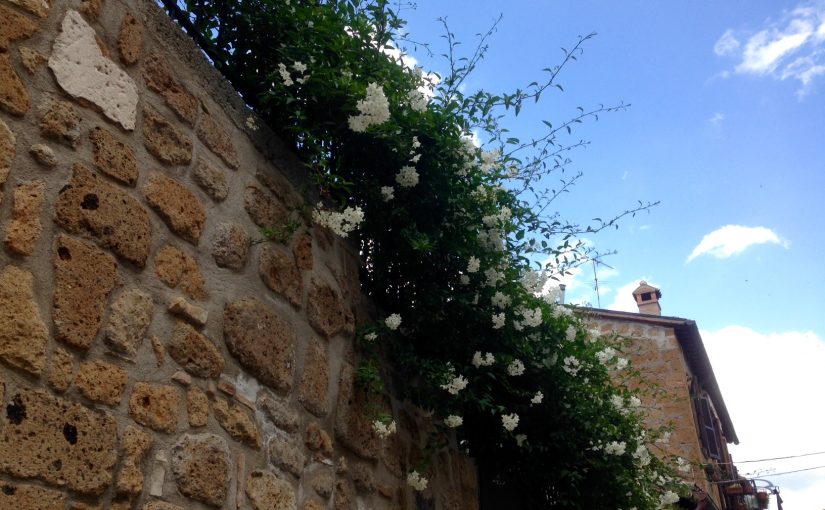Erika and I lunched in her courtyard today. Montanucci providentially had penne with shredded zucchini, oil and a smattering of cheese that I ordered take out, and that served well cold. Erika made a salad, provided some wonderfully tasty strawberries and a cold berry tisane. Teah, her border collie, was quietly charming.
Erika and I met at a party about three years ago. I knew she was special when I enthused about her late husband’s legacy while mistaking him for someone entirely different, and she had the grace and elegance to let it go. A year or so later, after seeing her here and there at various cultural events and lectures, I invited her to my courtyard for tea. She had read my play Risotto and had a few astute comments. We talked about our favorite books, the Italian language, and her many years in Orvieto. I loved her curious and inquiring mind, her quiet love for the place.
When I started work on Colloquia, I told her about the project and promised to send her a draft when one was ready. She was the first to read it, first to comment, and first to encourage production. Mutual friends have since told me that was a very Erika response. What she likes and believes in, she will nourish and support, tirelessly – that she has been doing that for Orvieto since she moved here in 1958.
Erika came to Italy on a European exploration after college – and after a time as curator in Long Beach, California – in 1955. For the next year she traveled alone, exploring the peninsula from football to bootstrap, using her intuition, fascination, and her knowledge of history as guides. She met her husband, Mario Bizzarri during that time. He was an archeologist working in Firenze. After they married, they settled in Orvieto where Mario led development of the dig at the Necropoli del Crocifisso del Tufo.
They had sons Claudio and Lamberto, both of whom continue to live in Orvieto Centro Storico. In 1967, Erika opened a store on Via dei Dolci that from her description I might have characterized as a curiosity shop; interesting items from around Italy (and beyond).
“For the store I chose things that appealed to my aesthetic – unique objects. Some of those were handcrafted items that had been rejected by the maker as flawed, but that’s what made them interesting.” She sold in 1988, but retained an active hand in the business, and the slotted metal sign, ERIKA, remained in place long enough for me to have vivid and wondering memories of it. Whoever Erika is, I would think as I passed, I believe I would like her.
Mario died in 1969. She later married Adamo, moved to Monterubiaglio, and after he died, into a characteristically rustic house to the west of the city in a largely rural district called Tamburino. She calls it The Villa and it was built by her father. But not too long ago, it became difficult for her to drive at night, and that cut her off from Orvieto’s cultural and academic opportunities which she cherished. Claudio set her up with an apartment on Piazza Ranieri that an American friend and associate had purchased, and we who knew her encouraged her to relocate. But leaving decades of living, and their attendant memories encased in treasured objects and books, took adjustment. She is now settled in town, and – in a twist of irony she may secretly admire – just in time for all the programs and events Orvieto-after-sunset has to offer to be cancelled. Oh well, that, too will change, and in the meantime it’s great to have her here.
With the exception of a little interruption called March, April and most of May, we’ve been enjoying Tuesday afternoon teas together since October. Today was our reunion.
“This courtyard doesn’t actually go with my apartment, you know.”
“Really? Who does it belong to?”
“The man who has the apartment up there,” and she pointed up past a spindly palm towards high-up windows. “But he’s okay with my using it.”
“How would he even get here? He’d have to leave his apartment through a door on…?”
“I’m not sure.”
“…Via Garibaldi, come into this palazzo through your front door, cross to the rear, through the door in your hall, and up the stairs to…”
“I know, it doesn’t seem very practical. But Orvieto is like that. I do wish he’d take out the palm. It offers nothing but dead fronds.” The palm, about as big around as a stout man’s bicep, rises almost three stories to an unreachable and neglected beard of defunct leaves.
“Claudio’s apartment is up there somewhere, not exactly sure where,” she waved, as we rose to get a better view of the courtyard owner’s probable apartment.
“Orvieto is such a maze,” I mused.
“Even more so behind buildings than on the streets. You have to come over here to see it, but there’s a belfry back there,” and she crossed to the side of the courtyard opposite its owner’s apartment. “Look,” she said, pointing past several layers of structure beyond and behind us. And there it was indeed, a bell tower of the kind that might be attached to what had been a small church or chapel. There are spaces for three bells, no longer in residence. “Isn’t that curious?”she asked delightedly.
“Where is that?”
“I have no idea,” she chuckled, “but it”s wonderful, isn’t it?”
Orvieto is not a large town, but it is dense enough that after more than sixty years of living here, there remains much for her to discover. I believe that suits her well. She is an explorer and a lover of the curious, and always will be.
We went indoors and she showed me a book her mother had as a child, binding gone but still elegant. The House at Pooh Corner, a book from her own childhood, followed; lovingly worn and fresh at the same time. I read a half page aloud. The language flowed like music.
The photo is of the Bizzarri family in the 1960’s.
